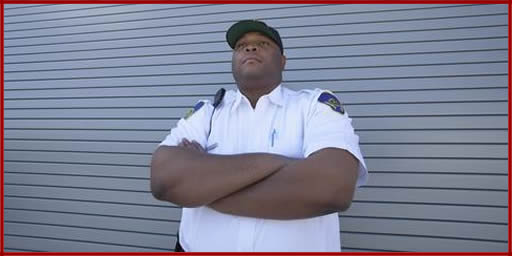Across the United States, more than 1 million private security guards keep a watchful eye over venues as varied as sports arenas, hospitals and retail stores. With no federal standards in place for licensing or security guard background checks, oversight authority is left to the states.

Several recent incidents involving security guards have drawn attention to screening, training and oversight procedures at the state level. Concern about training, licensing and security guard background checks also has helped fuel the recent introduction of some 90 state bills seeking tougher regulations.
Requirements for security guard background checks vary
Most security guards do not carry weapons, but those who do have raised regulatory antennae recently. In 2014, a joint investigation by CNN and the Center for Investigative Reporting uncovered a low level of accountability, along with insufficient oversight of armed guards. Nine states did not carry out criminal background checks on security guard applicants, the investigation found, and 27 did not check for applicants’ inclusion in a federal database that would prohibit them from carrying a firearm.
Several recent incidents have stoked sentiment for strengthening regulation of the industry. In Iowa, a security guard is accused of fatally shooting a woman, and a Kentucky guard allegedly took bribes to ignore thieves who stole more than $100,000 worth of whiskey from a distillery. A man in his 60s also died of a head injury following a violent confrontation with a contract security guard at a Virginia hospital.
Training and potential legislative solutions
Under current regulations, 41 states and the District of Columbia require licensing of security guards, but training standards vary. South Carolina, for instance, requires four hours of training plus four additional hours for security officers who carry guns. In Alaska, security guards must undergo 48 hours of initial training and another eight hours for those who carry guns. Nine states do not license security officers, although some cities within the states do require licensing. In 22 states, no training requirements exist for unarmed guards, and 15 require no training even for guards who carry weapons.
Dozens of bills have been introduced this year at the state level to beef up licensing and training requirements. None of the bills that would’ve added significant teeth to regulations has been enacted so far, however.
Implementing business safeguards
Many private security guards are contracted through agencies, while others are hired on by individual businesses. With requirements for security guard background checks, training and licensing varying so significantly by state, it’s wise for business owners to ask questions and implement their own systems for thoroughly screening background checks and training these key team members.
Disclaimer: The information on InstantCriminalChecks.com is governed by our Terms of Use and is never intended as legal advice.



Awesome blog, This Blog is very nice and interesting content and best information of security guards.